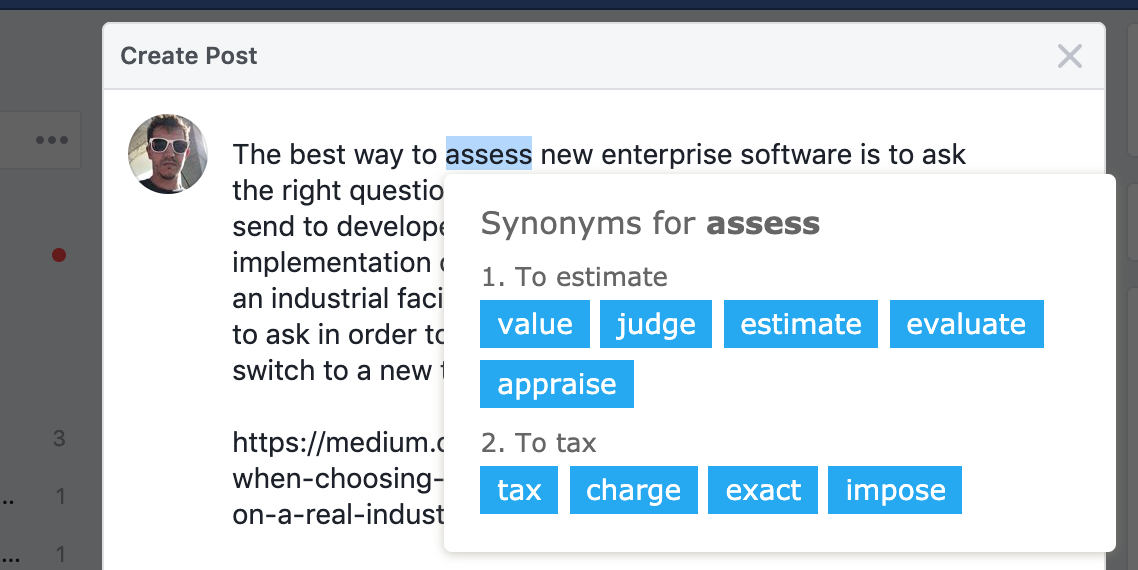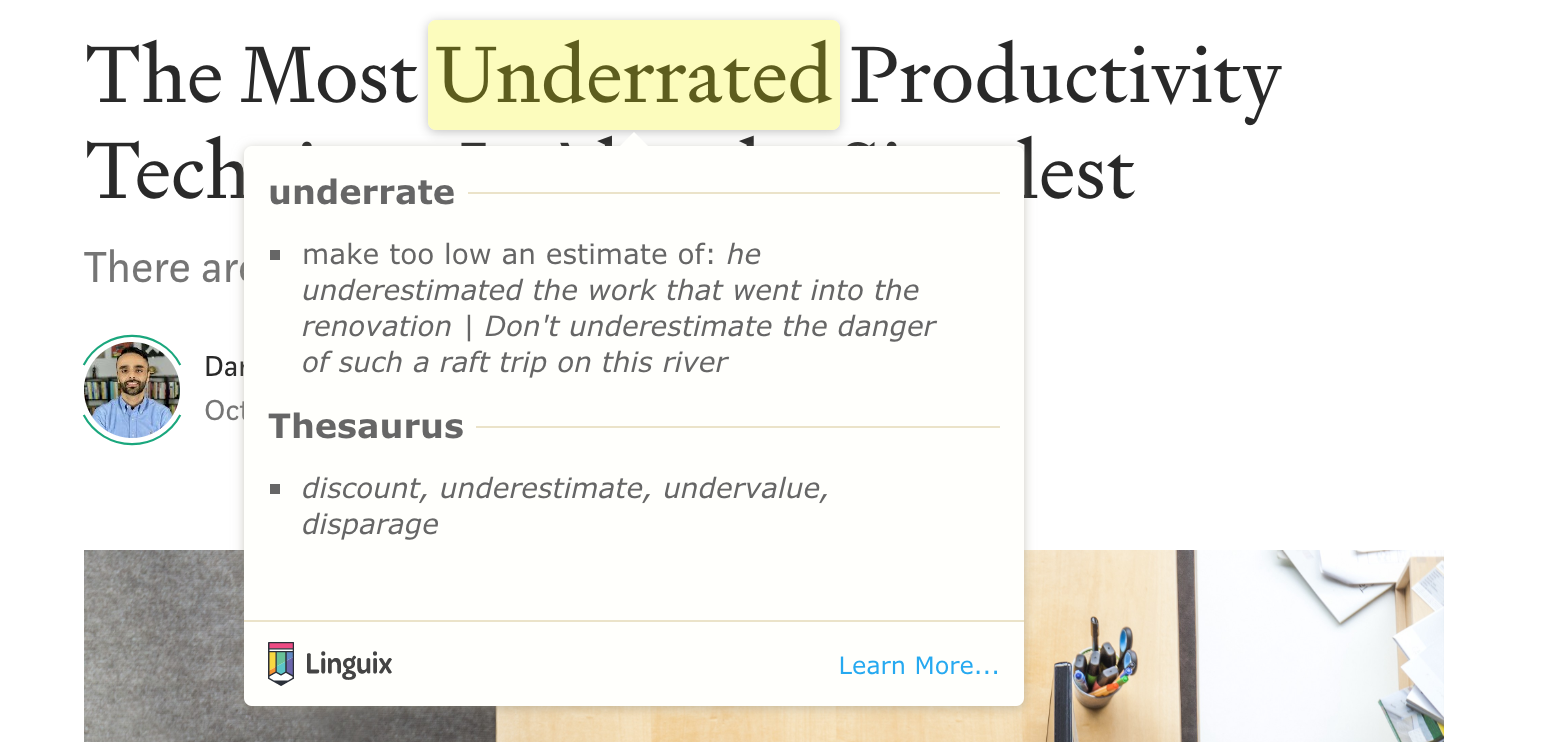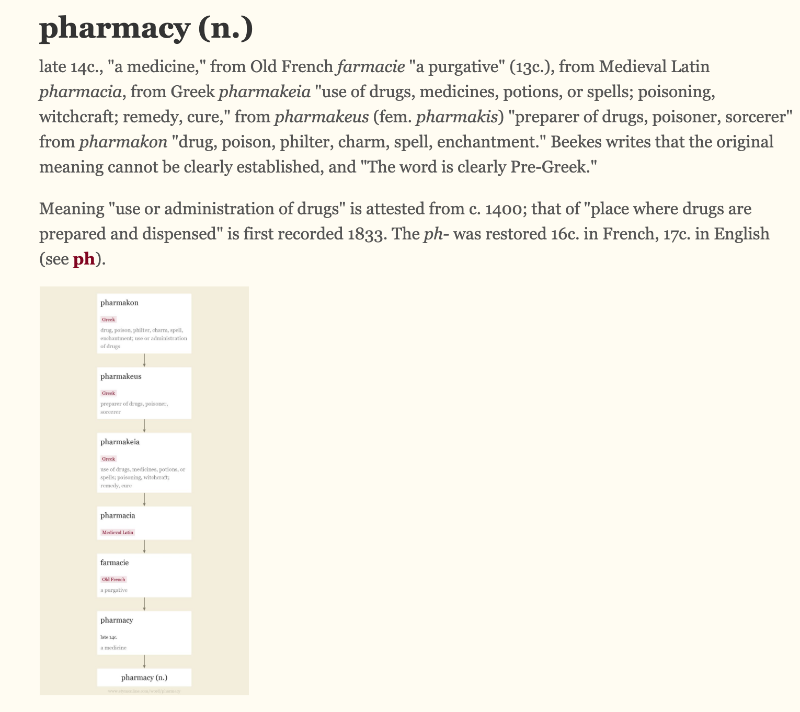
One of the most important tasks in learning a foreign language is not only practice with grammar, but also expanding vocabulary. The more words you know, the more situations you can explain - even if you have big problems with the articles and the formation of times, you will most likely be understood. And if you know few words, then there's nothing you can do about it.
It is important to understand that there are two types of vocabulary - active and passive. The first of them consists of words that you actively use, and the second is vocabulary that you “know” and understand. There are ways to increase the lexical reserves of both types. I found an interesting post with a selection of practical ways to do this and prepared an adapted translation of it. Go!
Read a lot (different texts)
This is the most obvious advice, but it is also the most effective. Reading allows you to get acquainted with a large number of words in probably the most effective context of their application. Often this allows you to guess the meaning of the word, even if you do not know it - simply thanks to the words surrounding it.
An important point: you must not read the same thing (so you will not expand your vocabulary). Any texts are suitable - books, articles on the Internet, even the menu in the restaurant often contains unfamiliar words.
Reading is a great way to expand your passive vocabulary. Therefore, to begin to really use the words that you learned with its help, you need to combine this method with some other from the list below.
Use dictionary
It is the “reading” of the dictionary that is another pleasure. For most people, this is nothing interesting. But if, for example, when you read, you have a dictionary at hand (which is rather a computer or a phone with a dictionary), it can be much more efficient.
If you do not understand a word in the text and cannot guess its meaning in the context of the sentence, then you only need to use the dictionary. Today, there are a huge number of them, for example, there is an extension for browsers that allow users to click on the meaning of a word on any web page.

The advantage of online dictionaries, like Google Translate , is that with their help you can not only learn the meaning of a word, but also listen to the correct pronunciation. And as you know in English “Liverpool is written, and Manchester is read”, so this is a very useful feature. Just find interesting words, study their meaning, try to repeat the pronunciation.
Enter the heading "word of the day"
Some language learning sites or dictionaries (for example, dictionary.com ) have the function “word of the day”, “word in trend” or a recently added word. This is a simple technique for memorizing new words - if you add words to your dictionary a day, you can seriously advance.

Learn etymology
Etymology talks about the origin of words and phrases. Why, for example, when it comes to heavy rain, they say 'it's raining cats and dogs' (here the history of occurrence is well-written - approx. Transl.)?
Sites like urbandictonary (with all its rigidity) and the Online Etymology Dictionary answer the question “where did the word come from” and “why do they say that?” If you have a natural curiosity, today you can learn more about any word very easily.

The chain of the word pharmacy with the Online Etymology Dictionary
Turn to poetry
A huge number of people love music, but songs can be interesting as literary works (of course, not all). Find lyrics and read them while listening to music. You will quickly realize that the texts use unfamiliar words. There are even applications like lyricstraining that gamify the process - you need to type the lyrics of the song while listening to it. It turns out a fun game that spurs interest in learning.
Play word games
Scrabble , crosswords, Jeopardy - any game built around words will be useful for your task. This is a great way to expand your vocabulary, because it works as if "in the background", you do not learn anything separately, but memorize words during the game.

Force yourself to use learned words
At the very beginning we talked about passive and active vocabulary. We need to work with each of these groups, because it is obvious that we cannot use words that we do not understand. You can start using vocabulary from a passive group to an active one.
Speak and write in English, because only practical use will allow you to remember the word and learn how to use it many times. It is important to remember that you are still learning, so you should not worry about possible mistakes - but correcting them will be another way to remember the word better. Today there are many tools that tell you when you are wrong, find an interlocutor, etc. (not so long ago I published a list of such extensions for the Chrome and Firefox browsers ).
What methods do you use to expand your vocabulary?